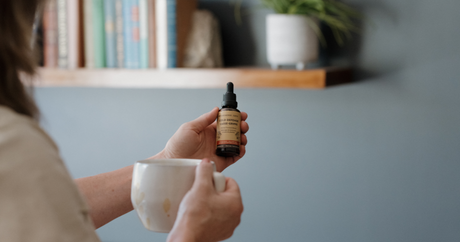Native to the Middle East, Asia, and Southern Europe, licorice root (Glycyrrhiza glabra) is a potent herbal ally that contains nearly 300 active compounds. Glycyrrhizin is responsible for many of licorice’s benefits, including its antioxidant, anti-inflammatory, and antimicrobial properties. For the respiratory system and beyond, licorice has a rich history of use and is an excellent herb to keep stocked in your at-home apothecary.
Disclaimer: This blog is for educational purposes only and is not a substitute for medical advice. Please consult your health care practitioner before adding any new herbs to your wellness routine.
History of Use
The use of licorice dates back to the beginning of recorded history. Various traditional healing systems within ancient Assyrian, Egyptian, Chinese, and Indian cultures prescribed this herb for diseases associated with the lungs, liver, kidneys, and circulatory system. Ayurveda and Traditional Chinese Medicine even used licorice to as an antidote to poisoning, whether by food or other herbs (1).
Licorice’s name is derived from two Greek words meaning “sweet” and “root,” where the herb was first recorded as a drug in IV century BCE. Licorice went on to be a favoured medicinal plant throughout Ancient Rome, the Middle Ages, and the Industrial Age. Its recorded uses include treatment of asthma, cough, stomach ulcers, heart palpitations, kidney stones, skin lesions, fever, and more.
To this day, licorice is included in various cough and cold remedies and commonly used to provide flavour and sweetness to candies, foods, beverages, and more.
Benefits of Licorice
Relieve Cough & Sore Throat
Licorice root is both an expectorant and demulcent, making it a great herbal ally for cold and flu season. This herb works to soothe throat inflammation and irritation, relieve congestion, and loosen up mucous, clearing it from the airways (2).
Combat Asthma & Allergies
Licorice’s anti-inflammatory properties can soothe asthma and allergies. One study found that taking licorice along with inhaled corticosteroids significantly increased the amount of air the participants could inhale and exhale (3). The glycyrrhizin in this herb has also been shown to reduce excess amounts of goblet and mast cells, along with thickness of lung membrane and epithelium found in those with asthma (4).
Support the Digestive System
Licorice has a rich history of use when it comes to soothing the digestive system. Its demulcent action works to combat inflammation and irritation in the digestive tract, and it has been shown to be protective for the liver (5). Licorice can even prevent damage caused by ulcers and h. pylori (6).
Soothe Skin Conditions
Not only can Licorice soothe internal inflammation, but it can help topically as well. This herb has been shown to significantly reduce pain, redness, and irritation from burn wounds (7). It can also soothe dry skin and itchiness associated with atopic dermatitis (8).
Calm Anxiety
Liquiritin, one of licorice’s flavonoids, has been shown to soothe feelings of anxiety and depression. By regulating endocrine function, hypothalamic-pituitary-adrenal (HPA) axis function, and increasing monoamine transmitter levels, this herb can reduce feelings of stress while improving mood, sleep, memory, and more (9).















